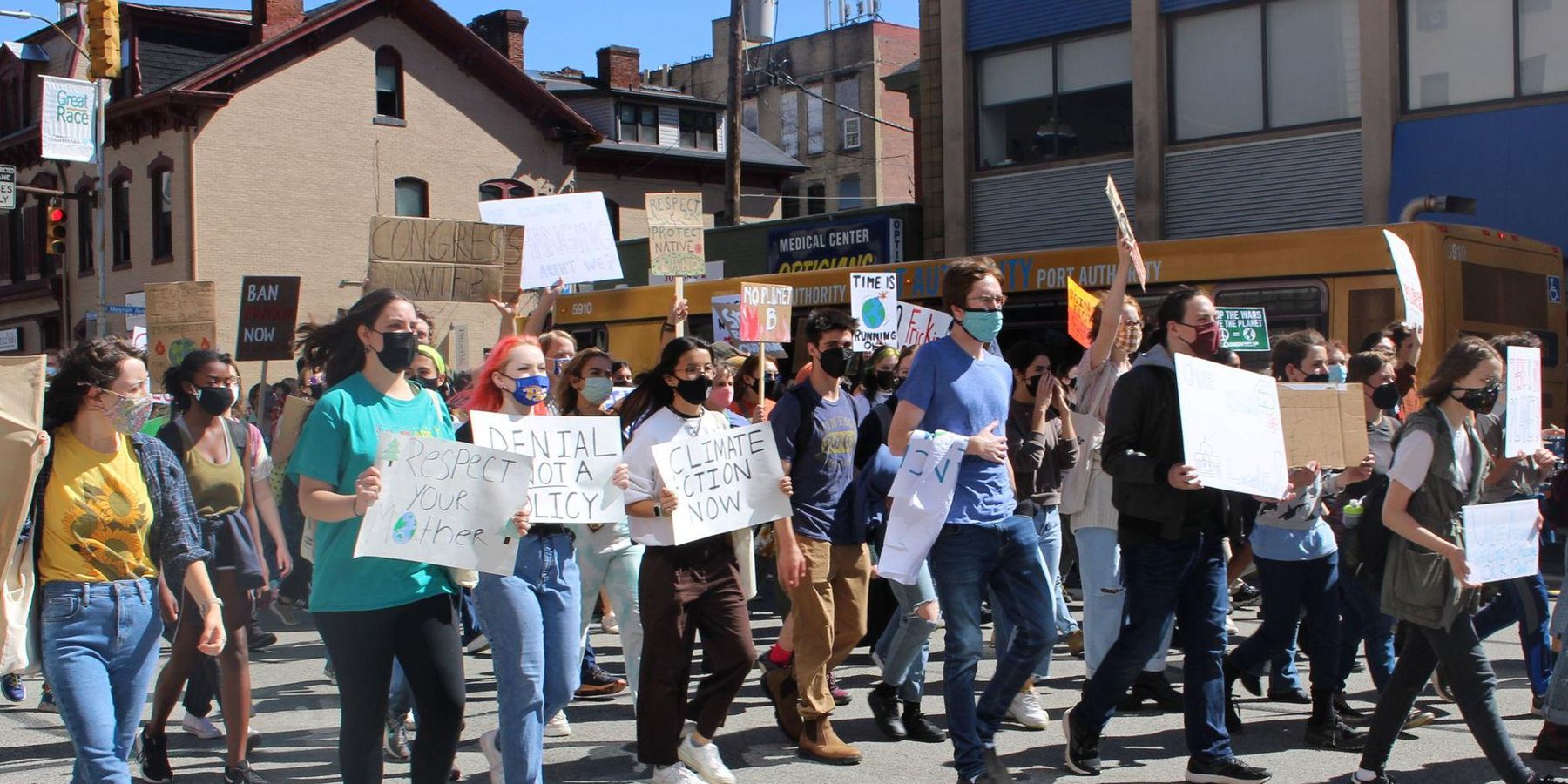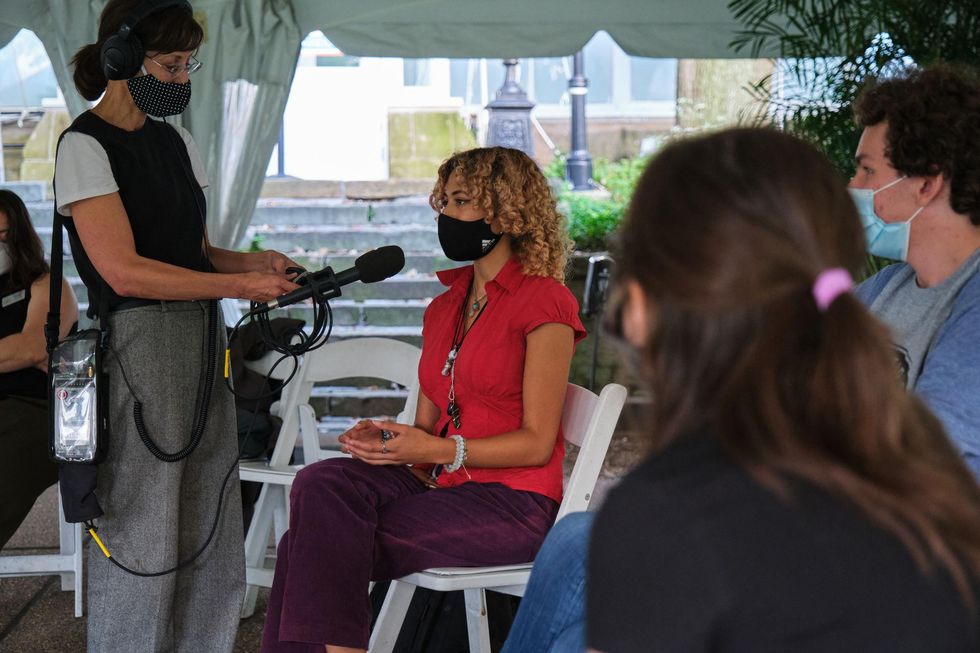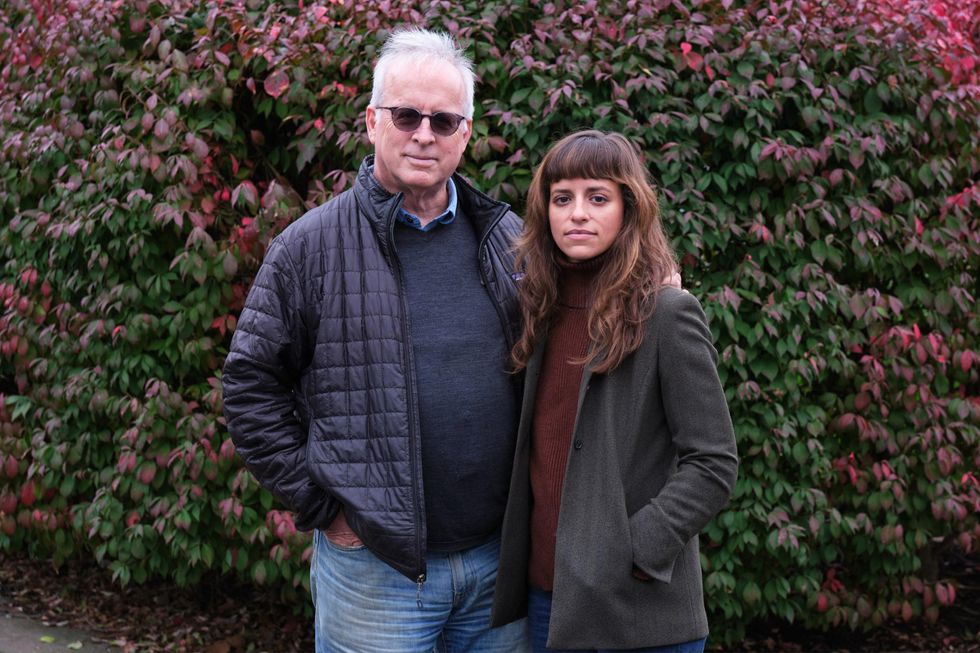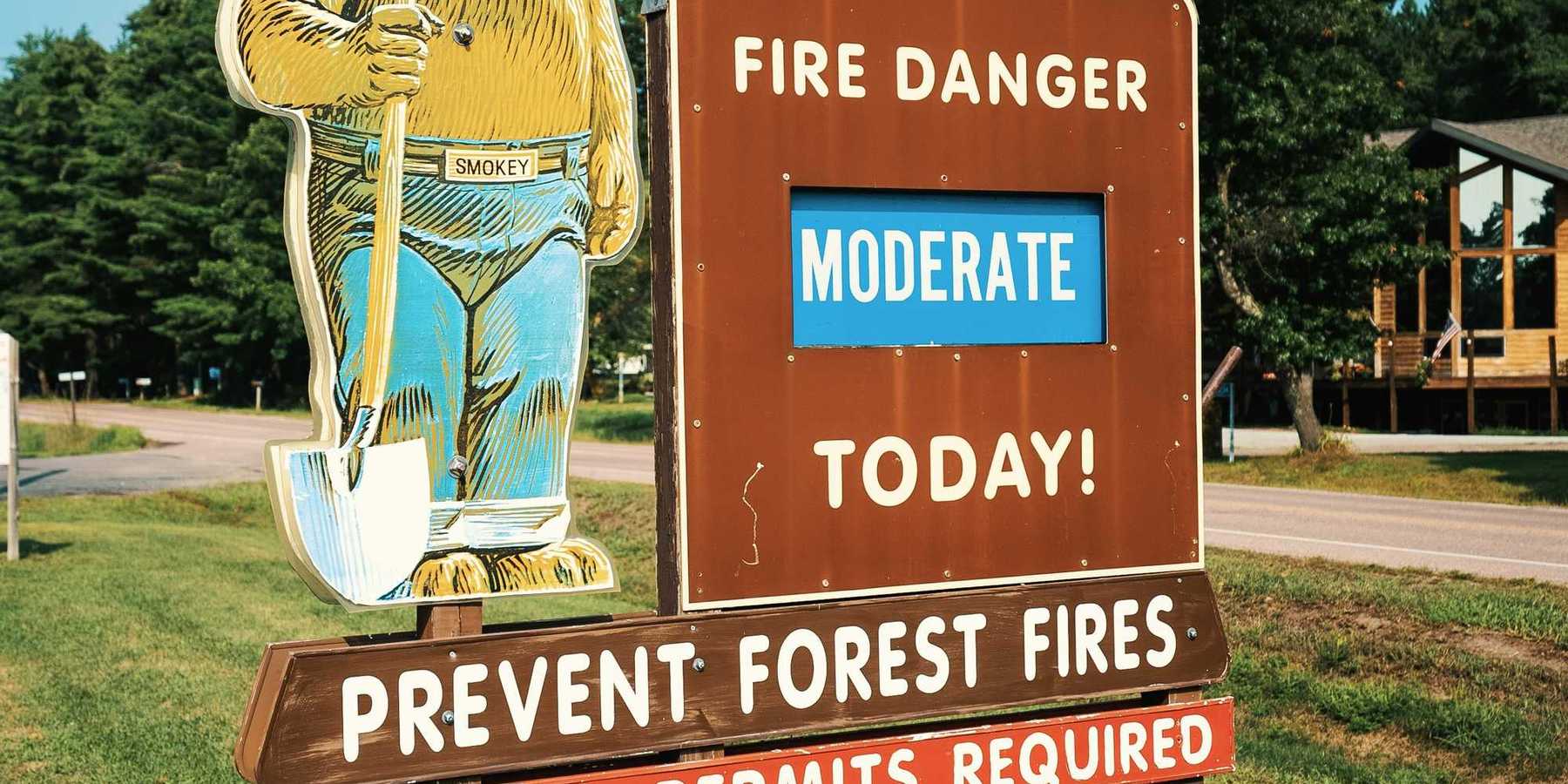
How to address the looming crisis of climate anxiety
As climate change worsens, the need will grow for mental health services. Some therapists are recommending climate action to ease worry. Others are advocating for community-based therapies to fill the gap.
The more people experience climate change, or even hear about storms and wildfires, the more it is expected to impact their mental well-being.
Some mental health experts have started preparing for the tsunami of need some leaders anticipate in the coming years.
A small group of high school students from around Pittsburgh set up chairs in a circle on the patio outside of Phipps Conservatory and Botanical Gardens for a monthly climate action meeting, organized by Communitopia.
Each student expressed their own reasons for getting involved, like Claire Bertolet, a 9th grader at Pittsburgh Allderdice High School, "I'm afraid life is not going to be like it is today, and we're not going to be living as comfortably," she said. "In the future it's going to be too late and we're not going to have time to act on it."
Some expressed concern for social and environmental justice, others for the impact of large corporations on the climate.
Allderdice junior Malcolm Kurtz is an avid hiker and bird watcher. "I am really concerned with how species are affected by climate change," he said. Kurtz finds meaning in climate work, while Ava DiGiacomo, a sophomore at North Allegheny High School, said the state of the world sometimes makes her feel helpless.
"This summer I started spending a lot more time outside, and there were moments when I would just sit and think, 'This world is so beautiful, and it's slowly getting ruined,'" she said. "And sometimes it feels like, personally, I can't do anything that's really going to make a big change. And that's not that's not an easy feeling to deal with."
But they are creating community around climate action, so they don't have to do it alone. On the evening they gathered in early October, some had just attended a climate march, and the group had organized a bicycling event called Pedal-Topia.
Rebecca Carter, a junior at Pittsburgh CAPA 6-12, appreciates the community they are creating. "Things like Pedal-Topia, where we can get together and do something in nature as a group of activists can be really helpful and cathartic," she said.
A need for climate-aware therapists
Dr. Elizabeth Haase, chair of the American Psychiatric Association's climate change committee, thinks students like this are on the right track. Feelings of anxiety, grief and longing for what's been lost in the environment, and worry about what will happen in the future with climate change, are all becoming more pervasive, according to Haase.
She's among a growing group of mental health professionals pushing for more climate awareness among counselors. Haase is also on the steering committee of the Climate Psychiatry Alliance, which is growing. "I think in five years we've gone from being a band of seven to eight people to 240 members," she said. The group has a directory of climate-aware mental health professionals.
Treating climate anxiety is not the same as clinical anxiety disorders, according to Haase. "It's a different animal, a different response when you're facing a real world problem," she said.
She compares it with treating someone with claustrophobia. She would encourage that person to face their fear, and spend time in enclosed spaces, like a subway car.
Related: Feeling anxious about climate change? Experts say you're not alone
"That is not an appropriate response when the subway car is on fire, right?" Haase asked. "The subway is on fire. You don't want to sit there and let your fear wash over you. You want to start doing stuff."
When her patients express concerns about natural disasters, climate change and ecological collapse, she advises them to find ways to talk with their family and friends about it and also to take action - join a climate group, write to their local congressperson, or pack up photographs and important belongings in an emergency backpack.
"Even just doing something like that gives you a greater sense of control, and it creates a safer space for you to be in when something bad is happening," Haase said.
A call for therapists to train others to serve the growing needs

Rebecca Carter, talking with Julie Grant of The Allegheny Front about her concerns about climate change. (Credit: Njaimeh Njie)
Dr. Gary Belkin, a former deputy health commissioner of New York City, and founder of the Billion Minds Institute, which is focused on the social aspects of climate change, wants the mental health community to start taking action quickly.
He already sees more mental health needs than there are available therapists, and climate change - the heat, droughts and wildfires, and general background stress it causes - is going to make that worse.
"We really have to get good at rethinking how we can reach a ton of people across that spectrum, And the only way we're going to do that is by enlisting communities to be part of doing that," Belkin said.
Belkin spearheaded a program in New York where mental health professionals trained employees at child care centers, churches and programs for at-risk youth, places that he calls the front lines for mental health.
"We skilled those staff in screening for distress and illness, for basic counseling skills," he said. "We have to engineer things so you don't have to look for care or support. You trip over it. And that's really what we have to aim for."
Beginning efforts to expand climate care in Pittsburgh

Walter Lewis, CEO of the Homewood Children's Village in Pittsburgh, says a few years ago he wouldn't have connected climate change with the mental health of his organization's clients. That's starting to change. (Credit: Njaimeh Njie)
One group on the front lines in Pittsburgh is starting to look into climate change and mental health: the Homewood Children's Village. It has six advocates that stay in touch with 300 members, including more than 100 families, according to the nonprofit's CEO, Walter Lewis. They regularly check in about education, economics, food, and health, including mental health.
"Probably three or four years ago, it would have never dawned on me to think about some of the types of trauma and mental health impacts of climate change," he said.
Disadvantaged communities like Homewood are expected to experience worse climate impacts than their wealthier neighbors. Lewis now sees the neighborhood's high rates of basement flooding, and childhood asthma, as potentially climate-related. So even though his advocates are not mental health professionals, Lewis says he can raise their awareness about how traumatic these types of incidents can be for their clients.
"People are now more empathetic to knowing that, 'Hey, we just had a heat wave, these are some things you might want to think about when you're talking to your families or the children that you work with,'" he said.
A new approach: Community-based therapy

Dr. Kenneth Thompson and his daughter Alice Thompson (pictured in Shadyside) (Credit: Njaimeh Njie)
As the number of people reporting anxiety and stress around climate change grows, others in Pittsburgh are trying to expand the available mental health care.
Dr. Ken Thompson, a community psychiatrist, based at the Squirrel Hill Medical Center in Pittsburgh, and his daughter Alice Thompson, a fourth year medical student, have been working to bring Integrated Community Therapy to the U.S. through their Visible Hands Collaborative.
Currently their free sessions are held twice a week online.
A trained facilitator welcomed more than a dozen people to a recent Tuesday evening online session, using a technique practiced in Brazil for 27 years, where in-person groups as large as 200 people gather to share their experiences, learn from each other and gradually deal with problems in their families and neighborhoods.
"The goals of this method are to help people learn how to express themselves and sort of have emotional literacy, how to talk about their feelings, and how to help people develop a sense of empathy with each other," Ken Thompson explained.
Facilitators are trained over months, it doesn't take years like mental health professionals. There are now around 40,000 facilitators in Brazil, as well as other countries, and the Thompsons are starting to train facilitators in the U.S.
"Having a safe space that's sustained over time is going to be really helpful, especially as climate change progresses," Alice Thompson said. "It will allow people to connect not only over their trauma, but also externally so they can support each other in other ways."
Her father continued, "It becomes a real powerful glue, and I feel like we need a lot of glue in this society...to keep us hanging together," he said.
In our polarized society, efforts like this are starting to help more people re-learn how to talk with others, and see their shared humanity, and hopefully reweave some of the community fabric that's been pulled apart. Because as the climate worsens, people are going to need each other.
Banner photo: The student climate strike on September 24, 2021 in Pittsburgh brought out more than 150 young people. Experts say this kind of action can help people who are anxious about the climate crisis. (Credit: Julie Grant/The Allegheny Front)
This story is part of a collaboration between Environmental Health News and The Allegheny Front for a series called "Pollution's mental toll: How air, water and climate change shape our mental health," with funds from the Pittsburgh Media Partnership.
Follow the fallout from this investigation on Twitter at the hashtag: #EHNmentalhealth
Struggling with your mental health? Want to take action against pollution and climate change? Check out our solutions guide.













